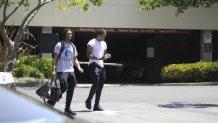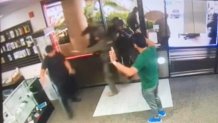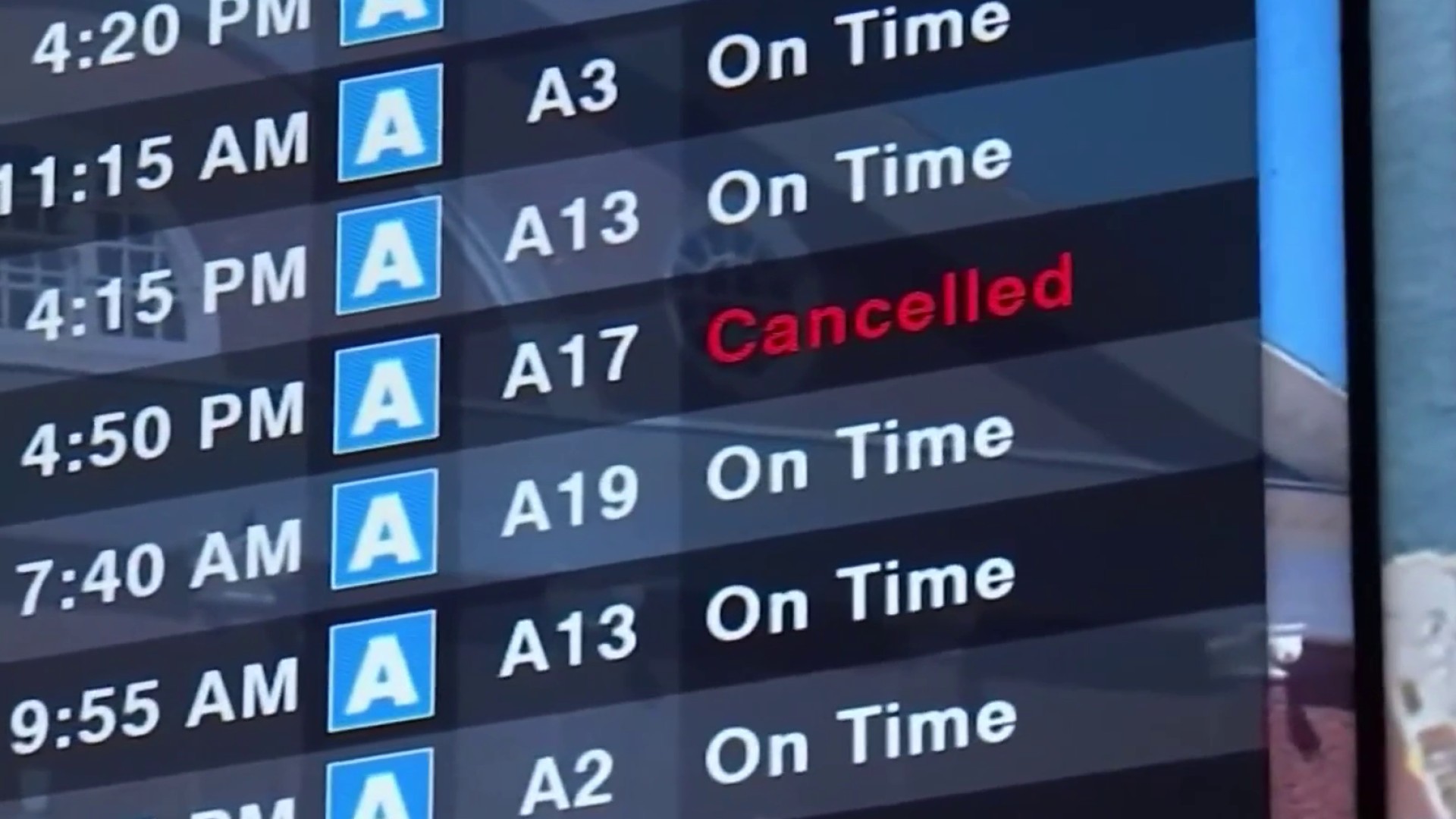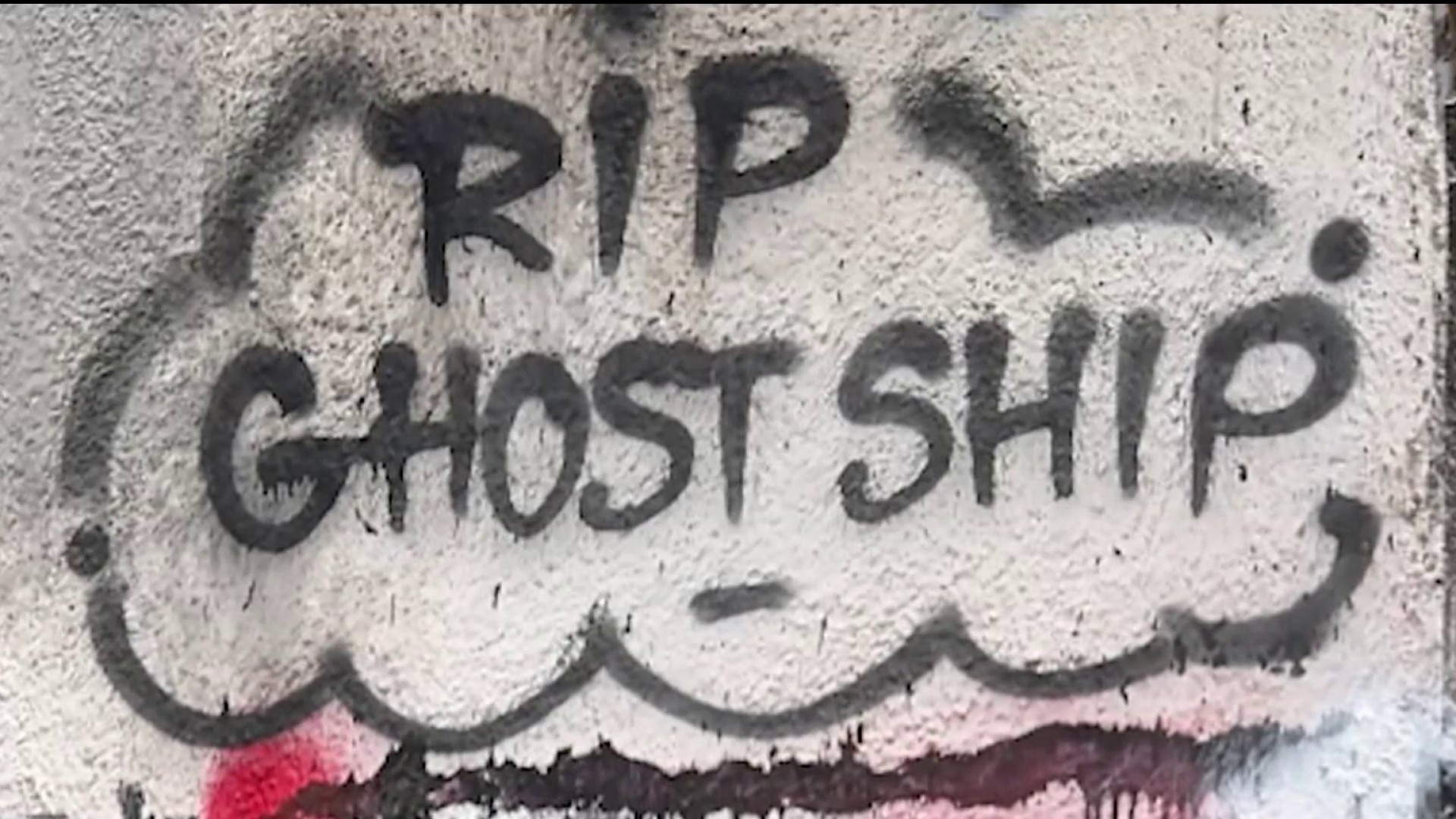From an undercover car in a nondescript Hayward strip mall, detectives snapped photos as Isaiah Langley and D'anthony Larks walk into a cellphone store called Torspin Wireless with a bag police believed was stuffed with brand new iPhones.
A few minutes later, photos and video shot by detectives captured the men strolling casually out of the shop towards a black Audi SUV. The bag appeared empty, and they were openly carrying large bricks of cash. It was June 7, three days before Langley would sign a professional football contract with the Oakland Raiders.

Investigators from at least eight different Northern California law enforcement agencies were zeroing in on a crew police say were tied to more than 60 strong-arm robberies and grand thefts – from the Bay Area to Sacramento – targeting delivery drivers carrying shipments of brand new cellphones. Police tracked the crew for three more months, arresting Langley, Larks, and 10 others in August.
But as the Oakland Police Department and Alameda County District Attorney’s Office led the investigation into the suspected robbery crew, detectives from the Fremont Police Department took an interest in Torspin Wireless, the Hayward store police believed was just a front for a major fencing operation trafficking in stolen electronics.
Crime is down across the board in Fremont, according to police, except in one category: auto burglaries. Detectives with the department say car break-ins have reached epidemic levels, rising sharply over the past two years. So, detectives shifted tactics – trying to disrupt the demand for stolen property by focusing their efforts on the fences, not the thieves.
Local
“What we were looking to do is drive down auto burglaries,” said Lt. Mike Tegner, who heads the department’s Investigative Unit. “It’s a problem in the Bay Area, and we know what was driving crime was these fences.”
Detectives began a months-long surveillance operation on the shop – watching time-after-time as customers walked into Torspin carrying boxes or bags and walking out with cash. Detectives would come to believe they'd found the Bay Area's largest fencing operation for stolen electronics – and the starting point of an international pipeline of stolen phones spanning at least four continents.
“Out of all the hours of surveillance we had done, I never saw one customer just go in there and buy something that a normal store would sell,” said Fremont Police Detective Rick Zemlok. “It was always people bringing in product and leaving with money.”
Zemlok said the man calling the shots for the operation was one of the store’s three owners, Muhibullah Nuristani. The store’s other owners – Mohammad Mustafa and Abdul Janah – also took part in the suspected fencing ring, as well as Mujibullah Nuristani, a relative of Muhibullah, according to Zemlok. All but Mustafa had been granted citizenship in the United States after serving as translators for the U.S. Army during the war in Afghanistan, according to police and attorneys for the men.
Detectives watched as Torspin purchased anywhere from 25 to 100 phones a day, Zemlok said. One informant told detectives Torspin was the Bay Area’s “chop shop” for electronics, and the store's owners knew they were buying stolen phones, according to court records. Torspin even circulated an electronic Google document for its “preferred sellers,” listing exactly which phones the store wanted to purchase and how much they were willing to pay, Zemlok said.
“They were paying a premium for these products, these iPhones and laptops, so the people that are stealing them from the backs of trucks and from peoples’ vehicles know that they can get a lot of money for them,” Zemlok said. “That’s why they’re committing these crimes at such a high rate.”
Police say they soon connected Torspin’s owners to other wireless stores, one in San Francisco called Teckspeen Wireless and another in El Cajon called MJ Wireless, where Muhibullah and Mujibullah Nuristani were based.
“About once a week they would travel down south and sell those products in bulk amounts,” Zemlok said. “We did multiple surveillance trips where we would follow them down to the LA area, down to El Cajon, and watch them sell those boxes of products to different people.”

They knew the starting points, but detectives wanted to know where the pipeline of stolen phones ended, Zemlok said. That meant getting into business with Torspin and MJ Wireless. Undercover detectives began selling phones to both stores and watched where those phones were activated. Before selling the phones, Zemlok and his team put them on the “blacklist,” a registry of lost and stolen phones that wireless carriers in the U.S. won’t activate.
According to court records obtained by NBC Bay Area, the stores' owners knew they were purchasing blacklisted phones, but bought them anyway. In September, according to court records, an undercover detective sold 77 blacklisted phones to Muhibullah Nuristani at MJ Wireless, who told the detective he couldn’t pay full price because the phones were locked. That meant he couldn’t resell them in the U.S. until he found a way to unlock them, Nuristani said.
But the vast majority of phones detectives sold to Torspin and MJ Wireless ended up overseas. Only two out of the 150 phones undercover detectives sold were activated in the United States, Zemlok said. The others were activated all over the globe, in Mexico, China, Russia, Vietnam, Singapore, Dubai, and Australia, among other countries.
In late October, detectives say they shut that pipeline down -- at least temporarily. After undercover detectives set up a deal to sell 900 new iPhone 11's to Nuristani and his associates, officers from multiple law enforcement agencies raided Torspin and seven other properties in the Bay Area and El Cajon tied to the accused fencing ring.

Detectives say they seized $350,000 in cash, 1,800 electronic devices, and multiple firearms, all purchased legally in the United States. Zemlok said Torspin’s owners and several of their employees were well-armed at the time of the undercover deal, fearing they were about to be robbed.

“One person that was detained was sitting in the car with a shotgun in his lap,” Zemlok said. “There was a shotgun behind the counter of the store. There was another pistol in the car underneath the seat.”
And during the raid, police say they found a strange and unexpected new thread to pull on: an iPad running an encrypted messenger app.
“There was someone watching the live camera feed of us in the shop,” Zemlok said. “Going through the messages on that iPad, there was a lot of communication from somebody that was basically checking them on all the deals they did.”
Zemlok said detectives believe the person on the other end of the encrypted messenger app was located in Turkey.
Following the raid, Janah, Mustafa, and both Muhibullah and Mujibullah Nuristani were arrested and charged with felony crimes of receiving stolen property. Other employees at the store were detained, but so far have not been charged with a crime.
When reached by phone, attorneys for Janah and Mujibullah Nuristani said their clients never knowingly purchased any stolen property and had no prior criminal records. They both emphasized the service their clients performed in support of the U.S. Army in Afghanistan. Muhibullah’s attorney declined to comment and Mustafa’s attorney could not be reached by NBC Bay Area.
For now, the Turkey connection is a mystery detectives are unsure they’ll ever solve. Tegner and Zemlok say they continue to go through the evidence seized in the raid, which could potentially lead to new charges against the suspects.
They hope the raid will disrupt the demand for stolen phones in the Bay Area --at least for now. They expect other fences will soon fill the void, but said they’re already working new leads uncovered during this investigation.
“We’re going to continue to do this,” Tegner said. “In fact, we’re moving forward on other operations as we speak.”
Reni De La Nuez also contributed to this report



